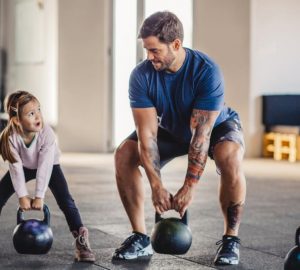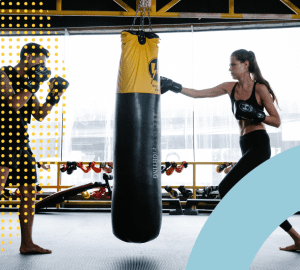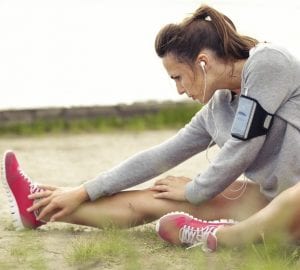By James Hudson
No matter how much you workout during the day, one factor that really matters and should work in correspondence with your workout routine is the diet plan that you follow. The following tips will help you balance your diet and exercise that will suit each other.
Exercise and diet are factors that go hand in hand. One needs to balance both these factors to remain healthy. A slight imbalance in one of these would not allow the other to succeed. It is important to follow a diet that assists the exercise or workout routine that we follow.
When one follows a strict and vigorous workout routine, it is necessary that he follows a diet plan that gives you a lot of energy to do so. The diet plan should suit the type of workout you would be doing. A person running in a marathon requires more energy than a person who walks just 2 miles. Accordingly, their food intake also varies. The intensity and duration of the activity would help determine what and when one should consume food. It is important to concentrate on the types of foods one would consume as a part of meals and snacks.
It is always better to eat something just a few hours before workout. This will help prepare the body for the exercise and help perform an effective workout. For those who like to exercise in the mornings, it is better to eat breakfast abut 2 to 3 hours before the workout. The food that was eaten at night has already been used up by morning. Thus, a body requires adequate amount of energy to perform well. At breakfast in the morning will help in supplying proper amounts of energy. If you do not have enough time before the workout, you can eat your breakfast about an hour before the workout.
Some foods that may prove to be great Breakfast options are:
• Low fat Milk
• Juice
• Whole grain cereals or bread
• Bananas
There are many people who are not fond of eating early in the morning. For such people it is best advised to consume good sports drinks that would give them energy or have a bigger and a healthy bedtime snack the previous night. Coffee can also be consumed in the mornings before the workout. But, make sure you limit it to just one or two cups. One should not overeat before a workout.
Meals should be adjusted according to the time of the workout that you follow. Large meals should be eaten about 3 to 4 hours before exercising. Small meals should be eaten about two to three hours before the workout and smaller snacks can be eaten just an hour before a workout.
It is important to eat in appropriate amounts. Eating too much will make one feel sluggish and may cause stomach cramps. Whereas eating less will not give an enough amount of energy to stay strong the entire day.
Some people are used to eating snacks just before they work out. Snacks when eaten before a workout, do not give you energy immediately. But, they may help in keeping up the blood sugar and thus prevent distracting hunger pangs. It is also important to consume proper snacks at such times. Good snacks that can be consumed right before a workout area:
• Fruits such as bananas
• Fruit smoothies
• Yogurt
• Energy Bars or Energy Drinks
• Granola Bars
Such healthy, small snacks are necessary when one plans to workout out several hours after a meal.
It is a good practice to eat a meal that contains proteins and carbohydrates within 2 hours of a workout session. This helps in muscle recovery also to replace the glycogen stores. There are chances that one may not feel hungry immediately after an exercise. At such times, one can rely on Carbohydrate rich energy drinks or supplements like white kidney beans, green tea etc.
Foods that can be consumed after a Workout are:
• Meat Sandwich
• Peanut Butter
• Nuts and Dried Fruits
• Fruits
• Yogurt
• A meal that contains meat, cooked vegetables and salads
Intake of drinks and fluids also play an important role to help optimize the exercises and workouts. Consumption of adequate amounts of fluids before, during and after the workout prevent the body from being dehydrated.
The American College of Sports and Medicine recommends:
• Consumption of 0.5 to 0.7 liters of water (2 to 3 cups) during the 2 to 3 hours prior to the workout.
• Consumption of 0.12 to 0.23 liters (1/2 to 1 cup) water every 15 to 20 minutes during workouts.
• Consumption of 0.5 to 0.7 liters (2 to 3 cups) water after the workout. This is for every 0.5 kg of weight that you may lose during the workout.
Water is the best fluid that anyone can consume without causing harm to the body. For those who are used to working out for more than an hour, an energy drink or an appropriate supplement may prove to be beneficial. These drinks and supplements will help maintain the body’s electrolyte balance and allows give a lot more energy due to the carbohydrates they contain.
It is important to remember that each one here is unique. Thus, no single plan or routine will work out for everyone. There may be different dietary plans and exercise routines that may suit people differently. It is the responsibility of the person to identify what suits him best and to follow what is right for him. It is important for an individual to know what effects different forms of exercises or foods have on their body. Adopting the best and ignoring the worst is the main factor one should follow.
Author: This post is written by James Hudson – a Fitness Expert. Fitness is my passion and first love. I assist people in their weight loss goals.
Reference link: http://sdpharmaceuticals.com/WhiteKidneyBeanWKB.html








